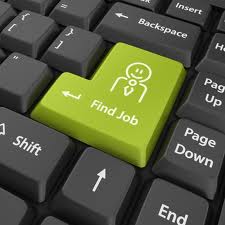 If you’re a teenager or college student, or the parent of a teenager or college student, then you all know what time of year it is…time to find that much needed summer job. While the economy has picked up a bit, there are many places, including here in Michigan where scoring a summer job is like looking for a needle in a haystack. Don’t give up – there are things you can do to help make your summer job search a success.
If you’re a teenager or college student, or the parent of a teenager or college student, then you all know what time of year it is…time to find that much needed summer job. While the economy has picked up a bit, there are many places, including here in Michigan where scoring a summer job is like looking for a needle in a haystack. Don’t give up – there are things you can do to help make your summer job search a success.
Seasonal Jobs
Head to your local garden centers, greenhouses, and home improvement stores. Many of these retailers hire extra help during the summer as more people are busy with remodeling and home improvement projects during the warm summer months. You could also check out your local government agencies, as they also hire students to help with extra lawn work during the summer. If you enjoy working with children, there are always parents looking for childcare while their kids are out of school for the summer, or you could look into opportunities at local youth camps.
Application/Interview Etiquette
Even if you are only putting in an application, dress professionally. If you are offered an interview on the spot, you want the hiring manager to focus on your qualifications and work ethic, not your short shorts or ripped jeans. Carry your resume and reference information with you to make the application process go faster, as well to show that you’re prepared in the event the employer asks for a resume.
Digital Dirt
Don’t think that because you’re only seeking summer employment that a hiring manager may not “Google” you or look you up on Facebook. If your status updates or tweets are filled with profanity and/or pictures of your weekend escapades, the hiring manager may decide right then and there that you are not the type of person who would be a responsible employee. Clean up your digital dirt before you start applying for jobs and remove inappropriate posts/comments from friends who have access to your online profiles. Finally, make sure you have a professional greeting on your voice mail. An employer doesn’t want to hear “This is Joe – hit me up” when they need to leave a message for you. Simply state your name and confirm your phone number in your voice mail so that the employer knows they have the right person.
With a little bit of patience, hard work, and perseverance, you will surely land that coveted summer job.


While you are cautioned to check your resume for factual errors, sometimes inadvertent errors get introduced. This can happen, especially when someone else is editing or critiquing your resume. The information on your resume is used for more than assessing whether you’re fit for a position. Once you are hired, this information may find its way onto a Web biography, into a company brochure or even on a SEC filing, as Yahoo’s CEO recently discovered to his dismay. Career information accuracy starts with the content you share on your resume.
Your resume will go through several incarnations over the development of your career. As you progress to higher level positions, it may be tempting to leave the proofing and fact checking of your CV, resume or career portfolio to a personal assistant. Do not make this mistake. Personal assistants come and go, but the inadvertent errors they may introduce into important documents such as your resume stick around. These errors can create career havoc for you, calling into question your credibility and your attention to critical details.
Check everything that is published about you and your career. It starts with your resume, but you also need to check the copy on the program that introduces you as a guest speaker and outlines your credentials. Make sure if you are being introduced at a conference or lecture that the host has your facts straight. This may not seem like a big deal until you realize that your lecture was taped and put on the internet with inaccurate details. People often assume that the “facts” they find on the internet are accurate, and they do not bother to do verify those facts on their own. An impeccable reputation is critical to your career success. Make sure that any information that is out there about you, starting with the content on your resume, is accurate.


Very few people stay in one career or even one job for decades anymore. Moving from one job to the next is one way to acquire skill sets relatively quickly. Once you acquire those skill sets, you may feel as if it is time for a career change. Your resume can help you reach that next career target in a couple of ways.
The career objective on a resume is sometimes a long, run-on sentence that doesn’t really say a lot about who you are or what you are looking for in a career. However, using a career objective effectively can help you when you are looking to change careers, but do not have experience in the career you are targeting. Succinctly state which skills you do have and how you want to use them. For example: I want to use my design skills to present museum exhibits.
Look carefully at job descriptions for your next targeted career and pick out the skills you have now that will transfer to this career. For example, while you may never have designed a museum exhibit, your art gallery event planning and exhibit design are both assets in your targeted career because they are also skills used in planning and designing museum exhibits. Environmental design skills are also a plus in staging a 3D exhibit where foot traffic patterns and how people interact with the exhibits are important. Highlight your transferable skills in a skills summary and show how you used these skills in an Accomplishments and Experience summary on your resume.
When you have a strong resume that clearly states the position you want, you have a greater chance of capturing the attention of the reader and moving on to your next big adventure.
Writing a Resume for Jobs in the US
Executive ResumesJob SearchProfessional ResumesResume WritingResumes

For example, putting a picture of yourself on the first page of your resume may be done in several European countries, but it is not the norm here. Even if you are an actor or a singer, a professional headshot usually accompanies the resume instead of being placed on the resume. Decisions about you as a candidate should be made based on your skills, not your degree of attractiveness.
Leave off your marital status and the number of children you have. It is illegal in the US to ask if you are married or if you have children. This information could imply that you may have competing needs between work and family. For example, you may need to call in sick because one of your kids is sick and you must stay home with him. Or you may need to leave work early on a regular basis to pick up your daughter from daycare.
Religious and political affiliations do not belong on a resume unless they directly relate to the job for which you are applying. For example, stating your religious affiliation on your resume if you are looking for church organist jobs may help you. Or, showing that you’re a Democrat on your resume would be appropriate if you are looking for a position on a Democratic campaign.
Hobbies and interests used to be sections on a resume used especially when a resume was pretty short and needed filling out or when the hobby or interest directly related to the position. They are not used as much now on American resumes. Be careful if you do use these sections. The information you share can damage your chances of getting a position. For example, if you belong to Insulin Pumpers Group 75 of Detroit because your child uses an insulin pump, a potential employer may think you have diabetes. This could be used to discriminate against you, even though discriminating against someone with a chronic illness is illegal in the US.


What you need to remember is that when you come to apply for a job application your resume is their first impression of you. You might be the best person for the job but if your resume doesn’t showcase this in the right way, then you will seriously dent your chances of being successful.
One of the main things that you need to avoid is spelling mistakes and grammatical errors throughout your resume. You need to check and double check your resume to make sure that everything in it is correct. You will often find that even the simplest of mistakes will rule you out of the running for a job. Remember that it is likely a number of people will be applying for the same job so the person in charge of applications will be looking for reasons to take people out of the running – you want to make sure you don’t give them one!
Also make sure that your resume is precise when it comes to job experience and skills. You don’t want to be too general. You need to give them a reason to hire you so selling yourself is a must when it comes to your resume. Include information of previous jobs and the skills that these positions have taught you.
It can be tricky but try not to make your resume too general, or ‘one size fits all.’ If you are applying for different jobs, then you may need to tweak each version of your resume slightly to sell yourself for each of the different job types that you are trying. That way you can be sure that when you are applying for different job positions you know that your resume is as relevant as possible and gives you the best chance of success.
The presentation of your resume is also important. Along with it reading well and including the right information, you need to make sure that it is pleasing on the eye. Remember that they will be reading many different resumes so you need to make sure that yours stands out for all the right reasons. Keeping your resume clean and tidy, you want it to include all of the information that is needed without it being too cluttered and busy. Add a little color or a graph of your recent sales numbers, etc. You need to give them a reason to read your resume and by making it look like hard work to read you are ruining your chances before you even start.


A hiring manager may look at your resume and see that you’ve switched jobs every couple of years. Some would see job hopping or frequent career moves as a sign of a restless employee, one who cannot commit to one job and doesn’t stay in one place long enough to be properly trained. Others may look at you as a go-getter who job hops to acquire new skills in a fast-paced industry.
Job hopping is not for the faint of heart in a weak economy. Sometimes it is difficult to find that next job or change careers. However, if you do job hop for new skills, new projects, more money, more experience or to progress to the next rung on the career ladder, you have to make it clear on your resume why you are changing jobs so often. A functional resume which lists a skills summary, professional experience summary and your employment history may clarify your job hopping for a hiring manager. Noting (briefly) in your cover letter will let them know as well.
If you are job hopping to acquire new skills, list those new skills on your resume in your skills summary, in the job description and also in the training section if appropriate. Highlight new projects and show how they build on previous projects listed on your resume, if appropriate. While more money may be a motivator to switch jobs, stating that fact on a resume is not appropriate. You can illustrate that you received more job responsibility by a higher level title, more responsibility and more complicated projects.
All of these may indicate why you are job hopping. However, you still need to show potential employers that you are a dependable employee by being dependable in all previous jobs. Show up on time, finish all projects by their deadlines and before you move to a new job. Contribute in meetings and one-on-one sessions to add value to your present company. Good career management is obvious when your previous employers are willing to give you a good recommendation.


If you are serious about job hunting, then you need to make sure that you approach it from every direction. It is all well and good checking job websites and applying for vacancies, but this isn’t always enough when it comes to finding your perfect job position and resume distribution might be able to help!
When firms are looking for people to join their team they don’t always go via job vacancy websites and newspaper adverts. They are often in a rush to find someone or feel that they need someone with the right skills so they tend to go via agencies to find who they need.
Of course, if you are out of work then being head hunted probably won’t happen, which is why you need to make the job vacancy opportunities come to you!
There are companies that specialize in getting your resume out there to the relevant people. This means that when big companies are searching for people, you can ensure that you are at the top of the list. When you contact a company about resume distribution they can usually make sure that your resume gets out there to the right people at the right time. This means that your resume goes to the right industry people and therefore you have the best possible chance of being successful when it comes to your ongoing job hunt.
Inquire about targeted distributions, not just distributing to anyone. Our resume distribution process asks for specific industries, desired positions and salary ranges so we can get the most targeted distribution possible. We don’t want to waste your time OR the recruiters time.
Just make sure that the resume distribution service you sign up for has the resources to get your resume out to the right places so that your skills are showcased to the right people!


I really like doing my work on a Mac, and if you are lucky enough to be able to choose your computer platform, showcasing your computer skills on your resume is an easy task. Whether you have a professional writer help you build your resume, or you choose to do it yourself, getting familiar with how your word processing program works, quirks and all, on both platforms will make your life easier.
More employers operate on a PC platform than on a Mac platform. So if you are a Mac fan like me and looking for a job, getting to know both platforms will be a big plus. Unfortunately, Windows Vista was such a buggy system that many PC users like myself bailed out and bought a Mac. Fast forward to now. Windows 7 has been a relatively stable environment, and if you have been away for awhile, learning Windows 7 won’t be all that difficult. It builds on computer skills that you used when you were working in Windows XP. There are also apps that will allow you to run a stable Windows environment on a Mac if you really want to stick with your Mac computer. Don’t let an employer catch you unaware, however, if you are a diehard PC fan. Some employers do work exclusively on Macs, especially in design fields such as graphic design and packaging.
Knowing both platforms will help you in your job search. Be sure to list both on your resume if you are up-to-date on MAC and PC systems. If not, look online for free workshops. Windows has gotten much better at providing online training. Apple recognizes that not everyone lives close enough to an Apple store to attend their free workshops, so much of that information is also online. Add any computer workshops you attended to your resume, as well as any computer certifications completed.
Make potential employers aware of your computer proficiencies by listing programs and applications you use on a regular basis on your resume. Most position ads will tell you which programs are required or desired. Check the ad carefully, and make sure you list every program and app required with which you have experience.
